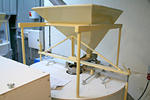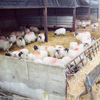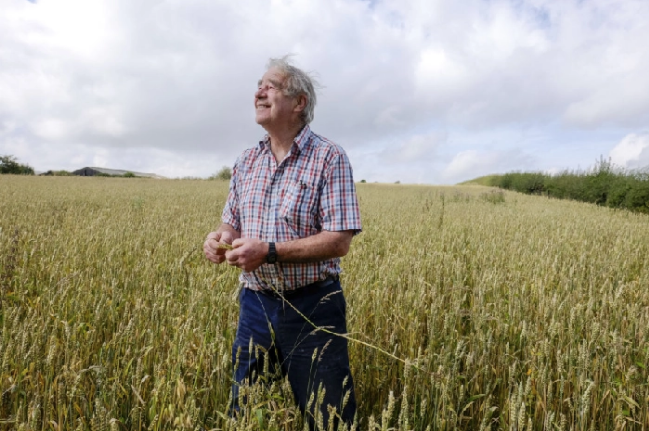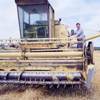


Covid-19 has caused a lot of people to notice the benefits provided by local food chains. When we were forced into 'Lock-down' home baking and cooking became 'safety first' measures which reduced the need for 'risky' shopping trips. Many people realised this, and flour disappeared from supermarket shelves for a month or more. Here at the mill, we found ourselves filling countless 1.5kg bags, with two people filling and packing about 100 bags an hour. The whole tragic pandemic has surely caused us to think about the resilience and sustainability of our bread supply. We need to review the way in which our whole food economy has ousted local growers and suppliers, while encouraging price wars between huge corporations.
Meanwhile, the revival of artisan baking grows, and our mill has become busier. We still come across more established organic millers, who continue to compete against each other - and us - by offering similar products with a lower price. The problem with this competitive race-to-the-bottom, is that farmers get paid less and the consumer is never made aware of the true cost of bread.
We have to remind ourselves that it is the farmer who is exposed to all the initial costs and risks, which include: several years of soil preparation; the uncertainty of weather patterns; purchase of good seed and machinery, the many hours of effort and time. Conversion to organic farming needs to be encouraged by the state, and in the future farmers should be properly rewarded for the crops they grow. The current scheme of rewarding farmers for the amount of land that they own, fails to confront the real issues behind our damaged environment and the long term sustainability of food production.
In order to rebalance things, some of us think it is time to re-consider the steadying benefits that were once offered by the Assizes of Bread. This was a fair-pricing scheme that was applied to the production of grain and bread from the middle ages until the repeal of the Corn Laws in 1846. It made local Mayors responsible for fixing the price of grain that was imported into or grown within their district boundary. The object of the scheme was to ensure that farmers, millers, bakers and consumers all got as fair a deal as possible. Not surprisingly, the scheme continued right through to the 1860’s. A lot has changed since then.
The Assizes of Bread - and Ale - was a complex policing scheme. Bakers did not like being controlled by the men from 'weights and measures'. On the other hand, something about it must have worked sufficiently well to have been tolerated for so many centuries. Today, with self-sufficiency, sustainability and climate change in mind, there could be something for us to learn from it. Now that we have computers and extraordinary new communications available to us, it surely deserves consideration. How might the best parts of the ‘Assizes of Bread’ be re-introduced? Wouldn't it make a fascinating programme of research for someone with computer skills and an interest in the resilience of national food supplies?




Our daily bread: A slice of life for the sourdough boys - Yorkshire Post
![]()
Keeping a weather eye on the wheat and hoping for an extended spell of sunshine is farmer and miller Philip Trevelyan, of Yorkshire Organic Millers. He produces organic lamb and small amounts of cereals, including organic wheat grown on the farm since 1975 and milled on the premises since 2005. Other wheat milled by Philip comes from organic suppliers within a 30-mile radius in North and East Yorkshire, at Driffield, Pickering and Whitby. Read more...

The journey of an artisan loaf begins with farmer Philip Trevelyan. Picture: Tony Bartholomew[

